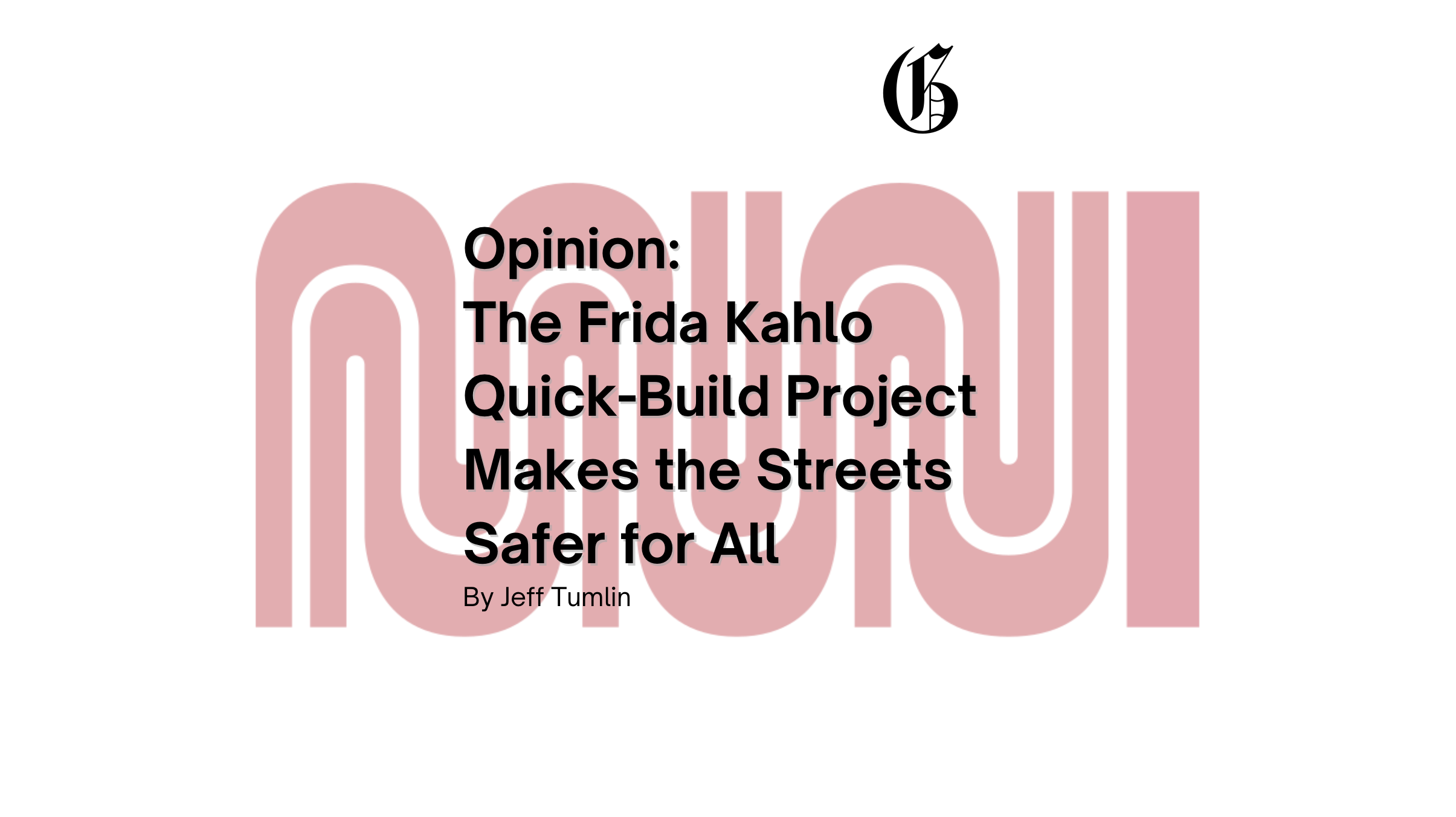The Frida Kahlo Quick-Build Project Makes the Streets Safer for All

By Jeff Tumlin
We at the San Francisco Municipal Transportation Agency understand the concerns of City College of San Francisco students and staff about our proposed Quick-Build project on Frida Kahlo Way. We have adjusted our plans to accommodate the community’s concerns, and we believe the project is the best choice for the college and the city now and for the future. The project creates a convenient and safe way for City College students who may not have a car to bike to campus away from more challenging and dangerous streets and will improve Muni access to the City College campus and beyond.
The Frida Kahlo Way Quick-Build project will add a two-way protected bikeway on the east side of Frida Kahlo Way / south side of Judson Avenue, update pedestrian crossings and make changes to improve Muni access and reliability. These changes will improve road safety for pedestrians and people who bike, but they’ll help drivers as well. The more biking and taking public transit become appealing options to get to campus, the more students and staff will decide to leave their cars behind. This means there will be less traffic congestion and more parking available for students and staff for whom driving a private car is the only practical means of getting to campus.
Right now, students might hesitate before choosing a bike to get to campus. Frida Kahlo Way is a crucial link in the city’s bikeway network, connecting the West Side of San Francisco with the Mission, downtown and beyond. While the street itself is not on the city’s “High Injury Network” – the 12% of streets where more than 68% of severe and fatal traffic crashes occur – it is surrounded by streets with some of the highest injury rates in the city: Ocean, Geneva, San Jose, Alemany, Mission and Monterey. These streets were designed decades ago to prioritize motorist speed over pedestrian and cyclist safety, and we are working on safety improvements to all of them.
Moving bicycles off the sidewalks also makes the streets safer for pedestrians. Changes to the bus stops, including transit boarding islands and improved stop spacing, will make boarding and disembarking the bus easier for riders. These curbside changes also will make access to Archbishop Riordan High School safer for students. And they will improve the speed and reliability of the 43 Masonic bus line. We have heard the community’s concerns about traffic congestion, and these measures will help alleviate congestion in the corridor.
The project also will benefit the climate and align with City College’s own Green New Deal goals. We at the SFMTA applaud City College’s climate leadership. Vehicle transportation accounts for almost half of San Francisco’s greenhouse gas emissions. Within that, private cars and trucks represent 72 percent of greenhouse gas emissions.
As the trustees wrote in City College’s Green New Deal resolution, CCSF should “promote accessible shared transport method; make pedestrian and bicycle access improvements.” We are eager to work with you to meet the goals laid out in this resolution and in the city’s Climate Action Plan to reduce both direct greenhouse gas emissions and energy consumption from campus commutes. The most cost-effective way for City College to reduce its transportation-related emissions is to promote the most efficient modes of transportation. We believe the Frida Kahlo Way Quick-Build project does just that.
During the course of this project, we have held 24 public workshops, and many of the themes we heard in the workshops were the same. The primary concern among City College students, based on the outreach we have done, is the loss of some free parking near campus, and we have responded to those concerns by reducing the number of free parking spaces that will be removed to 33 spaces. This constitutes less than two percent of City College’s parking supply.
We understand that City College faculty, staff and students lead complex lives and often are on campus for only a few hours between other commitments. We recognize that driving a private car sometimes is the only practical means of getting to campus for some in your community. We want to ensure these people can continue to access educational opportunities at CCSF and believe that the Frida Kahlo Way Quick-Build can accommodate these students and faculty while also improving safety and expanding opportunities for more sustainable travel.
We stress that our commitment to improving access to and around City College for users of all transportation modes does not end with this project. We will work to evaluate and adjust the Quick-Build project to meet the needs of the CCSF community as it adapts to coming land use changes (like the Student Success Center and STEAM buildings now under construction), and we will continue to work towards transformative improvements to Ocean Avenue and other major streets people depend on to get to and from BART, local businesses, home, and work.
The SFMTA is proud of its longstanding relationship with City College. The college has provided a sizable share of our workforce with an education and prepared them for career success. Jobs are constantly changing, and workers need to acquire new skills. CCSF is more important than ever, as the school plays a critical role in training skilled and adaptable workers who can help keep the city moving now and into the future.
